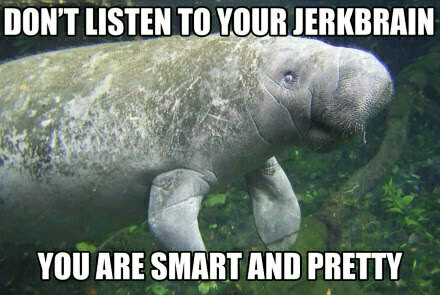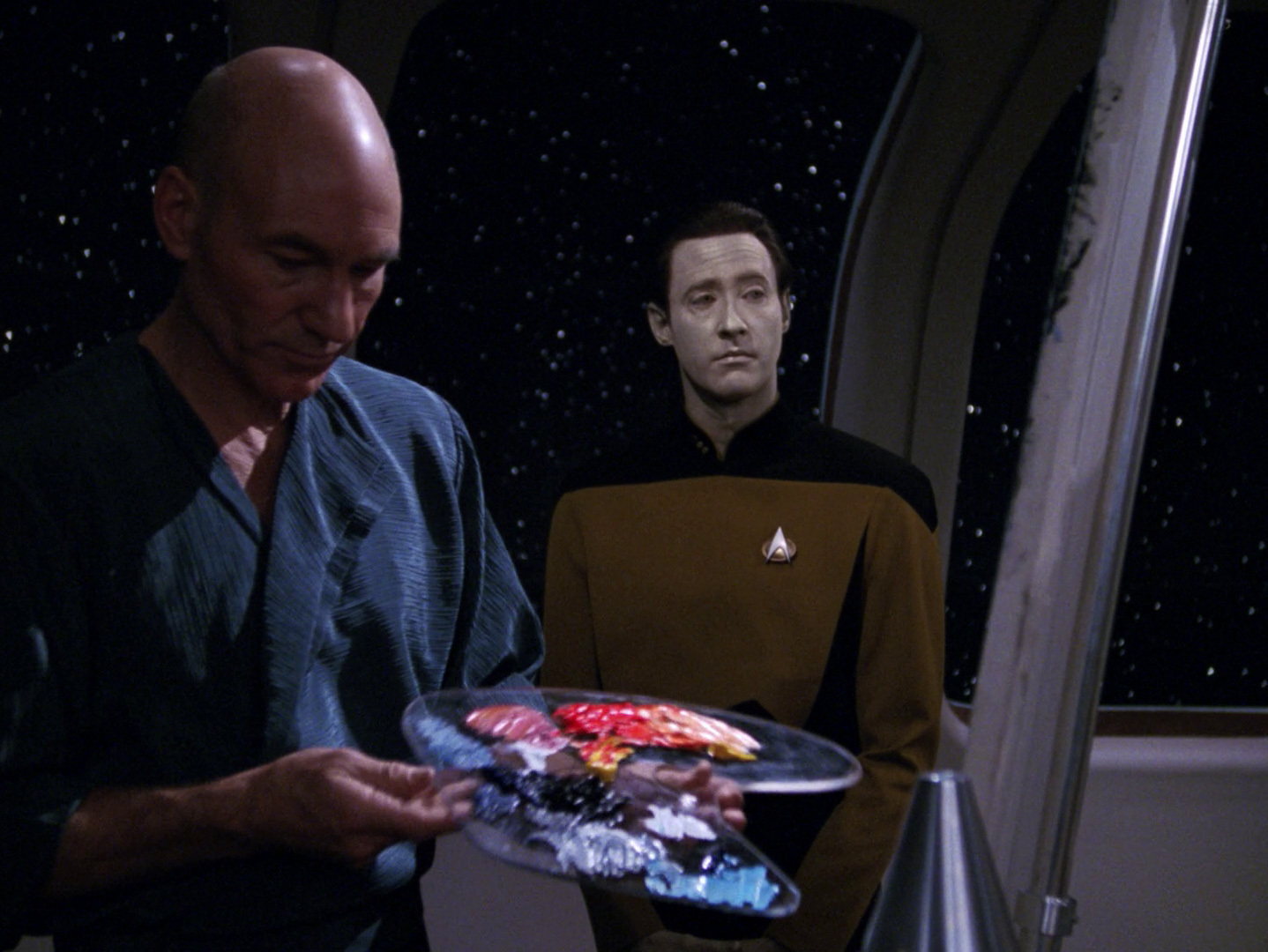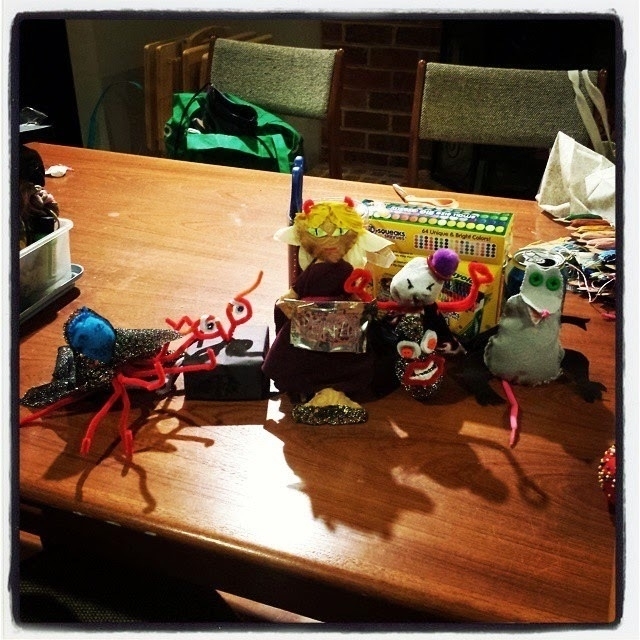Finished reading: The Artist’s Way - The Basic Tools by Julia Cameron. 📚
In this chapter, Cameron introduces the morning pages and the artist date, the two key tools for creative recovery.
Morning Pages
The morning pages are three pages of stream-of-consciousness writing completed longhand first thing in the morning. Cameron says that there is no wrong way to do these, but at the same time, I’ve seen her insist on her website that they MUST be done first thing, MUST be done longhand, and MUST be three pages. In my experience, having all of those requirements means they often don’t get done.
Perhaps many people doing The Artist’s Way aren’t awakened by a cherub raring to go most mornings, but I myself am often wakened in this manner. If M. is up, it’s hard to do the morning pages first thing. So I do them as soon as I can. This usually means right after getting home from dropping M. off at school. Sometimes it’s later. Sometimes it’s at night. Sometimes it’s not at all. Cameron claims that doing them in the evening “allows us only to reflect on a day that we’re powerless to change” but I find that doing a brain dump is valuable any time of day. Getting little anxieties out on paper makes headspace for me, even if it’s right before I fall asleep. My friend Jeanie said, “I think I got hung up on her demand that morning pages can only be done in the morning and went full on ‘you can’t tell me what to do!’” and I replied, “Yeah. Mine get done whenever. She’s not the boss of me.”
As for doing them longhand, Cameron says (again, on her website):
Typing Morning Pages may give us more speed— but will give us less depth. Writing by hand connects us more intimately to our thoughts, and paradoxically is more efficient in terms of getting in touch with ourselves and opening the path to our most authentic selves and the day at hand.
This is a very nice ideal but it leaves out all of the people for whom writing longhand may not be an option ever or sometimes. There are days when writing longhand is a challenge for me; on these days I tend to put on a crafter’s comfort glove and only write until my hand starts to hurt. Usually these are one-page days. For people for whom this is always a challenge, I think it would be perfectly fine to do your morning pages digitally by typing into a service such as 750words or by recording a voice note to yourself - pick an amount of time to just talk stream-of-consciousness and go, somewhere in the 5 - 15 minute range, I would think.
So sorry, Ms. Cameron. I’m going to take you at your book’s word, not your website:
There is no wrong way to do morning pages.
Cameron talks about how the morning pages are a way to get around your internal censor:
…always remember that your Censor’s negative opinion and not the truth.
This reminds me of my favorite Calming Manatee meme:

Cameron says your inner Censor tells you, “It’s not Picasso.” This reminded me of the Star Trek: The Next Generation episode, “A Matter of Perspective.” In the teaser for this episode, Captain Picard and a few other crew members are participating in a painting class. Data, who tends to approach a problem by immersing himself in all the recorded knowledge about it and thus approaches his own paintings in that fashion, offers critique to the other participants. He has high praise for Ensign Williams and Lieutenant Wright, but when he gets to Picard’s painting, he just says, “Interesting.” Picard says, “Oh, thank you. In what way?” At which point Data responds:
While suggesting the free treatment of form usually attributed to Fauvism, this quite inappropriately attempts to juxtapose the disparate cubistic styles of Picasso and Leger. In addition, the use of colour suggests a haphazard mélange of clashing styles. Furthermore, the unsettling overtones of proto-Vulcan influences -
before Picard stops him.

Y’all know I love Data, but sometimes his approach isn’t the one we need, and doing our morning pages is DEFINITELY one of those times.
Cameron suggests finding an image of your internal Censor that you can use to “pry loose some of its power over you and your creativity.” For over 20 years now, my internal Censor and any other negative voice in my head have looked like this:

That’s the Thesulac demon from the Angel episode, “Are You Now or Have You Ever Been.” It spends decades whispering horrible things to people about themselves and was exactly the externalization of a negative inner voice that I needed as I was first going into remission with my first strong bout of depression. It is still that voice for me. In fact, in Kim Werker’s book Make It Mighty Ugly, there’s an exercise where you make a physical manifestation of that voice and I made my own little Thesulac demon. You can see him on the far left in this group of mean voices here:

(For more details on this exercise, feel free to read the blog post I wrote about it.)
Cameron says the morning pages teach us this truism:
We have this idea that we need to be in the mood to write. We don’t.
I love this. It’s definitely true if you’re doing stream-of-consciousness writing. If you’re looking to do something slightly less random, I recommend trying Anne Lamott’s exercise from Bird by Bird where you start with your earliest memories and just write down everything you can remember. I haven’t tried that yet, but I plan to when I’m through The Artist’s Way, if not before.
Cameron describes the morning pages as a kind of meditation and says,
We meditate to discover our own identity, our right place in the scheme of the universe.
Identity is my overarching obsession so I really appreciated this.
Cameron says some people try to write their morning pages, as in create good writing, but instead that we should just do them.
Artist Date
The Artist Date is a weekly “outing” (shifted somewhat in the time of COVID), taken solo, to explore something out of the ordinary for us. It is a play date and meant to be delightful rather than dutiful.
When I started The Artist’s Way in September, I was saving my artist date for Fridays, which meant it never got done. I was treating it like a reward and I never felt I earned it. And I thought it had to be a solid two-hour block. It’s hard for me to book a two-hour block for anything.
This time, to guard against invasions or feelings of being not worthy, I’m going to do my artist date early in the week. On Sunday or Monday I’ll select and schedule it, and then on Tuesday or Wednesday I’ll do it. Also, I won’t demand that I reserve a two-hour block for it. I’m looking at no less than one Pomodoro (25 minutes) and up to 4.
Filling the Well
Austin Kleon says that problems of output are usually problems of input. Cameron says so, too. She suggests that the morning pages are output and the artist date is input, and that we must feed our brains with images in addition to words. She said:
In filling the well, think magic. Think delight. Think fun… think mystery, not mastery.
Cameron points out that focused attention is key for doing this. She says, “Many of us read compulsively to screen our awareness,” which, guilty. In the pre-smartphone era, I did all the things people complain about people doing when they’re focused on their smartphones. I just did them with books. (Did I walk into trees? Only a few times.)
This is a delicate balance when you have depression and anxiety, because it’s easy for the attention you’re focusing outward to suddenly turn inward and bring that nasty voice forth. I’m going to be working on finding that balance for a long time.
I’d like to close out with this quote:
Art is the imagination at play in the field of time. Let yourself play.